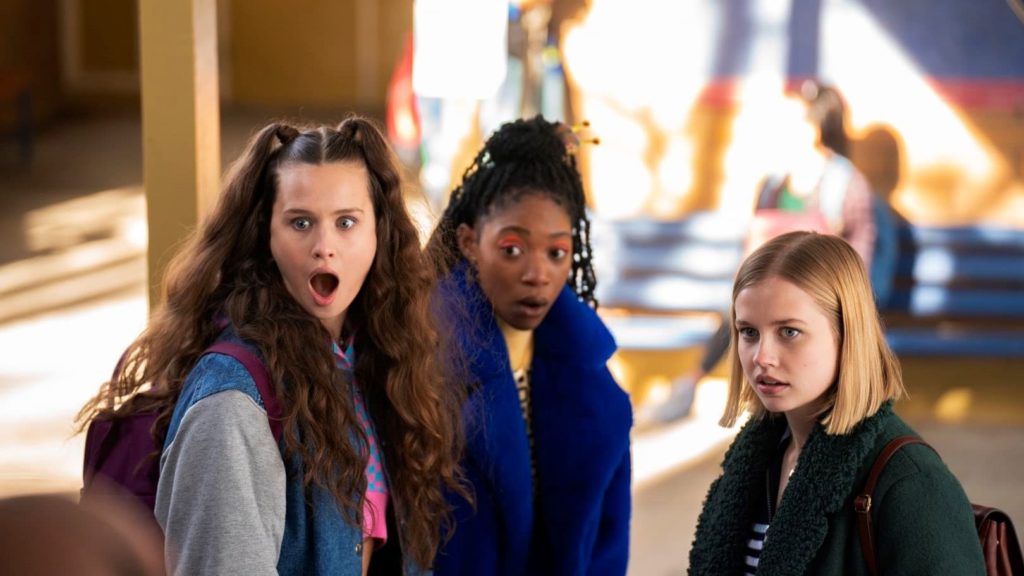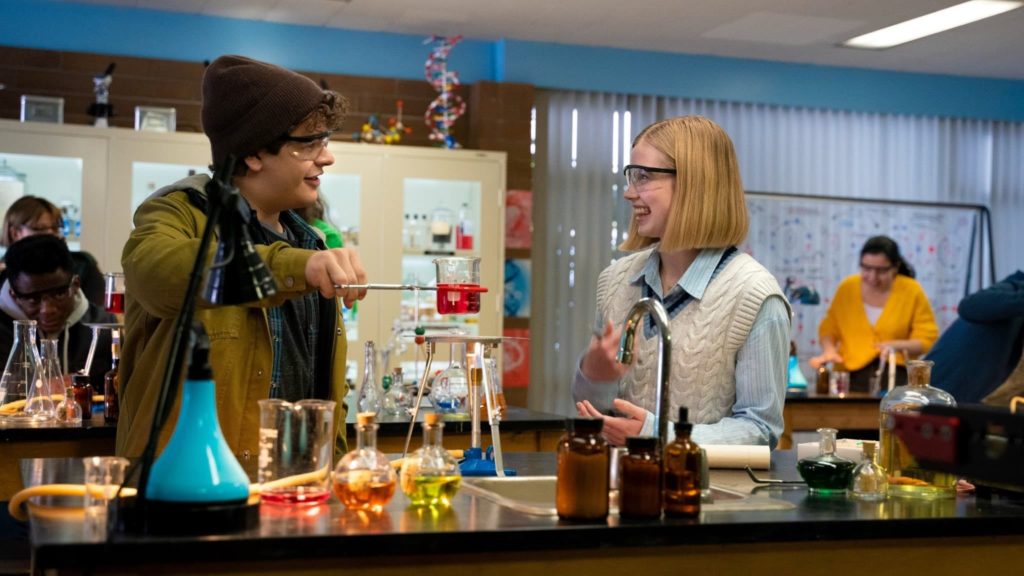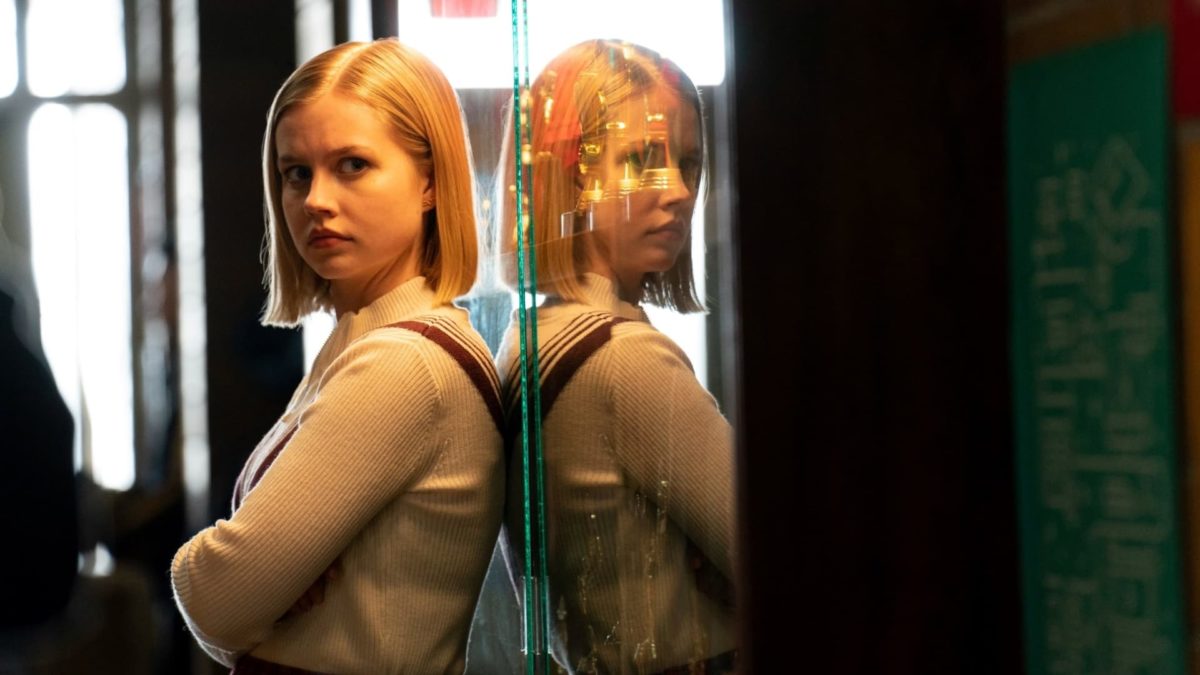It is pretty much impossible to talk about Honor Society without talking about how it resolves, so if you want to remain unspoiled: stop here. (I will say I successfully predicted almost every twist well in advance, so maybe it’s not quite as spoilable as it seems on the surface.) It’s worth watching if you like high school comedies.
Honor Society is essentially Mean Girls in reverse: It starts with its heroine, Honor (yes, that’s her name), as an established Machiavellian queen bee. Throughout the film, she pretends to be selfless and buddies with the benevolent losers. She realizes, after it all, that she has become the very thing she hoped to manipulate: Kind, supportive, and romantic. It destroys the values that initially defined her, though this is positive character development, unlike Mean Girls.

And then the gut punch: Someone else has been playing her like a fiddle this whole time, and it’s the very boy who helped catalyzed her change. Although not exactly a Usual Suspects-level twist, it still upends the movie quite a bit, in a clever way. It’s a mirror to the movie’s initial premise, a reverse image of exactly the manipulations that Honor (Angourie Rice) instigated throughout the film.
Even though I think it’s a compelling twist, I have some issues with its implementation; specifically, its tone. So much of the movie operates in snarky, postmodern nastiness, that the sudden heartbroken earnestness with which the movie treats the revelation is a bit indulgent and unearned. It’s odd: I thoroughly expected Honor’s arc to be scheming → comeuppance → growth, in that order. Instead, we get scheming → growth → comeuppance, which is similar, but hits differently and makes the comeuppance a bit more painful and less fun. Because Honor’s character development has already happened, the movie expects us to be sympathetic rather than cheering when she’s backstabbed.

It’s overall still a crisp little comedy. It’s not especially funny, but it is witty and fast-paced, so it at least feels funny. The screenplay, in particular, is sharp and tight. It leans heavily on Fleabag-esque fourth-wall breaking that serves the same function voice-over narration (a technique that I’m not tired of yet, but I’m sure I will grow so soon if it keeps getting used). Honor Society is especially a breath of well-structured fresh air watching this movie back-to-back with Funny Pages, whose aimless ethos provided a contrasting double-feature.
Rice gives an excellent performance as Honor, with the right blend of smug confidence and vulnerability that commands the screen. It’s not quite in the Hailee Steinfeld in The Edge of Seventeen– or Elliot Page in Juno-tier as far as quick-witted high school girls go, but I hope it portends Rice’s rising stardom. Co-star Gaten Matarazzo as Michael Dipnicky also shines as a disarming, baby-faced geek. (Matarazzo’s case of cleidocranial dyplasia gives him an especially goofy, endearing smile.) McLovin is there as a horny counselor, and he’s solid as well.
I can’t say that Honor Society gives quite enough material or emotional heft to pull it into “good” territory, though it comes close. Maybe if it had stuck its clever landing with a little more comedic grace I’d give it the thumbs up. But it’ll have to be a thumbs sideways for now.
- Review Series: 2022: Year in Film
Is It Good?
Nearly Good (4/8)
Dan is the founder and head critic of The Goods. Follow Dan on Letterboxd. Join the Discord for updates and discussion.

